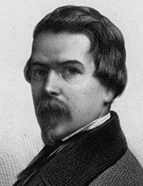

Everything suggests, from what is known about his life, that Varnhagen had a feeling that he wouldn't be very popular in his own country and that he distrusted the loyalty of his colleagues in preserving his memory. He always demanded that his country recognise its great men. It seems he hasn't changed his mind, even after his death! This is one of the limits of Varnhagen's paradox: the nation's greatest historian struggled to gain the recognition he sought, particularly within the IHGB, the devoted patriot who was seldom in his homeland. It is evident, both in his correspondence and in his work, that Varnhagen devoted a significant part of his life to attempting to resolve this ambiguity, or at the very least, to overcome the sense of dispossession he experienced. He attempted to forge a constant connection, an intimate coherence, between the discordant aspects of his existence, both as a Brazilian and as a historian of the nation. Wasn't his immense work dedicated to Brazil and its links with Portugal a way for him to always be among Brazilians and Portuguese readers? "All modesty," he wrote in a letter to King Pedro II in 1854, "is not enough for me not to recognise that the Historia do Brasil [History of Brazil], at least in many of its periods, remains with my work once written, and that it (the work) will live on eternally and will do eternal honour to Brazil and to the reign of Its Protector." Like the work of Thucydides: a possession for all time. It seems to me that all the works and what is known about his life can be interpreted as attempts to organise two distinct and simultaneously intertwined temporalities: the history of Brazil and his biography. He takes the same care to give meaning to the nation's history, its past, present, and future. History is an instrument of this double recognition. With it, one can gain knowledge and understanding. With it, Varnhagen proved his nationality and that of the country itself. Varnhagen's historiography thus wraps up a drama of a particular psychological order, where everything is constantly confused: at the same time, an answer to an existential question and an attempt to explain the needs, conscious or unconscious, of Brazil: who are we? Where did we come from? His work, his diplomatic career, his abundant epistolary writings, and his will, which are constituent elements of this discourse of the 19th century that I call the rhetoric of nationality, participate in a logic that is both retrospective and prospective, enabling the perception of the consistency and constancy he sought to impart to his existence. A strategy of action that is nothing more than a biographical illusion? I'm not sure.
This work is financed by national funds through FCT - Foundation for Science and Technology, I.P, in the scope of the projects UIDB/04311/2020 and UIDP/04311/2020.
